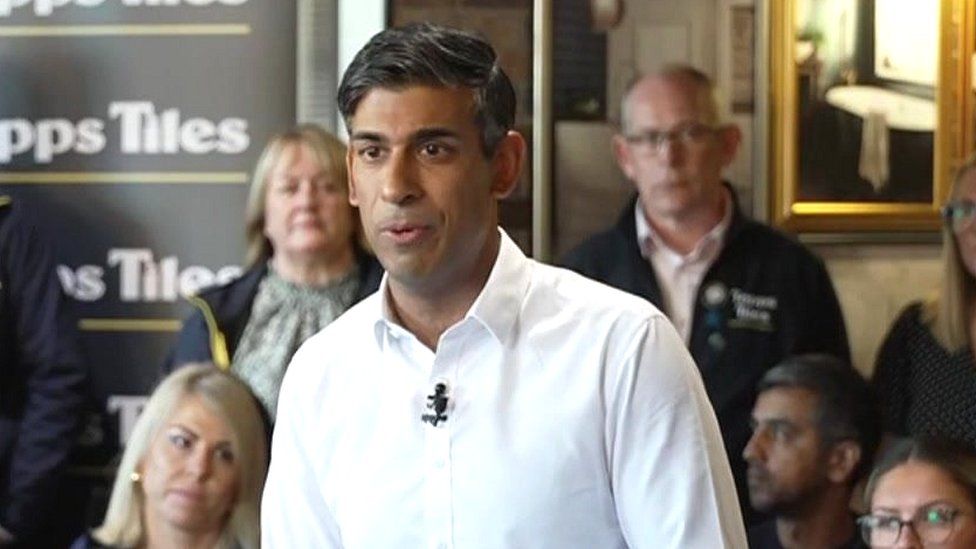ARTICLE AD BOX

By Becky Morton
Political reporter
Rishi Sunak has said it is difficult for people to understand the scale of government support with energy bills, as he defended his record on tackling the cost of living.
The prime minister said halving inflation was a top priority and his plan to ease rising prices was working.
But food, restaurants and hotel costs are still rising.
The inflation rate, which measures price changes over time, fell to 6.8% in the year to July, down from 7.9% in June. This means prices are rising less quickly.
Inflation is much lower than it was at its peak of 11.1% in October, but it still remains high compared to historical rates and much higher than the Bank of England's 2% target.
Speaking at a business event in Enderby, Leicestershire, Mr Sunak said that unlike furlough, where the government subsidised wages of employees hit by the Covid pandemic, "no one quite understands the scale of what we've done" with energy bill support.
"A typical family will have had about half their energy bills paid for by the government over past several months - that's worth £1,500 to a typical family," he said.
"Now you wouldn't have quite seen that because you would have still just got your energy bill, it would have been very high and you'd have been, 'Oh my gosh, what's going on', but what you wouldn't have realised, maybe, is that before that even happened, £1,500 had been lopped off, and the government had covered it."
Under the Energy Price Guarantee, the government limited energy bills for a typical household to £2,500 a year, alongside a £400 winter discount.
However, the guarantee ended in July.
Mr Sunak said his plan to halve inflation, by being "responsible" with spending and borrowing, was working.
However, speaking to journalists at the same event, he said he was "not complacent" and knew "things are tough right now".
The prime minister added that the government was also helping people by cutting fuel duty, capping bus fares outside London, and giving support payments to pensioners and people on Universal Credit.

 1 year ago
19
1 year ago
19








 English (US)
English (US)